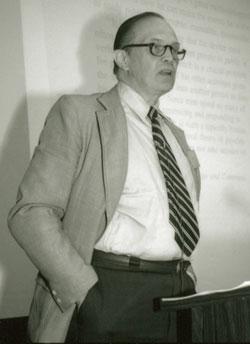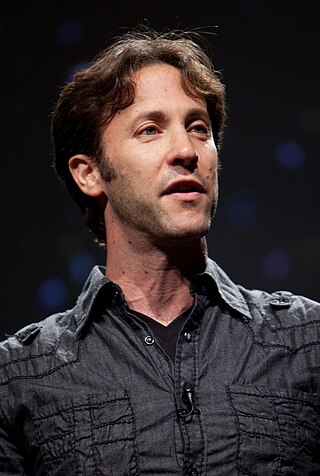
Cognitive science is the interdisciplinary, scientific study of the mind and its processes with input from linguistics, psychology, neuroscience, philosophy, computer science/artificial intelligence, and anthropology. It examines the nature, the tasks, and the functions of cognition. Cognitive scientists study intelligence and behavior, with a focus on how nervous systems represent, process, and transform information. Mental faculties of concern to cognitive scientists include language, perception, memory, attention, reasoning, and emotion; to understand these faculties, cognitive scientists borrow from fields such as linguistics, psychology, artificial intelligence, philosophy, neuroscience, and anthropology. The typical analysis of cognitive science spans many levels of organization, from learning and decision to logic and planning; from neural circuitry to modular brain organization. One of the fundamental concepts of cognitive science is that "thinking can best be understood in terms of representational structures in the mind and computational procedures that operate on those structures."

Perception is the organization, identification, and interpretation of sensory information in order to represent and understand the presented information or environment. All perception involves signals that go through the nervous system, which in turn result from physical or chemical stimulation of the sensory system. Vision involves light striking the retina of the eye; smell is mediated by odor molecules; and hearing involves pressure waves.

The Nanyang Technological University (NTU) is a national research university in Singapore. It is the second oldest autonomous university in the country and is considered as one of the most prestigious universities in the world by various international metrics. It is usually ranked amongst the world's top 20 institutions of higher learning. NTU is ranked 19th in the world according to the 2023 QS World University Rankings, and has also been ranked 1st globally amongst young universities by the QS World University Rankings since 2015.

Cognition refers to "the mental action or process of acquiring knowledge and understanding through thought, experience, and the senses". It encompasses all aspects of intellectual functions and processes such as: perception, attention, thought, imagination, intelligence, the formation of knowledge, memory and working memory, judgment and evaluation, reasoning and computation, problem solving and decision making, comprehension and production of language. Cognitive processes use existing knowledge and discover new knowledge.

George Armitage Miller was an American psychologist who was one of the founders of cognitive psychology, and more broadly, of cognitive science. He also contributed to the birth of psycholinguistics. Miller wrote several books and directed the development of WordNet, an online word-linkage database usable by computer programs. He authored the paper, "The Magical Number Seven, Plus or Minus Two," in which he observed that many different experimental findings considered together reveal the presence of an average limit of seven for human short-term memory capacity. This paper is frequently cited by psychologists and in the wider culture. Miller won numerous awards, including the National Medal of Science.
Learning styles refer to a range of theories that aim to account for differences in individuals' learning. Although there is ample evidence that individuals express personal preferences for how they prefer to receive information, few studies have found any validity in using learning styles in education. Many theories share the proposition that humans can be classified according to their "style" of learning, but differ in how the proposed styles should be defined, categorized and assessed. A common concept is that individuals differ in how they learn.

Charles Spence is an experimental psychologist at the University of Oxford. He is the head of the Crossmodal Research group which specializes in the research about the integration of information across different sensory modalities. He also teaches Experimental Psychology to undergraduates at Somerville College. He is currently a consultant for a number of multinational companies advising on various aspects of multisensory design. He has also conducted research on human-computer interaction issues on the Crew Work Station on the European Space Shuttle, and currently works on problems associated with the design of foods that maximally stimulate the senses, and with the effect of the indoor environment on mood, well-being, and performance. Charles has published more than 500 articles in scientific journals over the last decade. Charles has been awarded the 10th Experimental Psychology Society Prize, the British Psychology Society: Cognitive Section Award, the Paul Bertelson Award, recognizing him as the young European Cognitive Psychologist of the Year, and, most recently, the prestigious Friedrich Wilhelm Bessel Research Award from the Alexander von Humboldt Foundation in Germany.
Sensory substitution is a change of the characteristics of one sensory modality into stimuli of another sensory modality.
The cognitive revolution was an intellectual movement that began in the 1950s as an interdisciplinary study of the mind and its processes. It later became known collectively as cognitive science. The relevant areas of interchange were between the fields of psychology, linguistics, computer science, anthropology, neuroscience, and philosophy. The approaches used were developed within the then-nascent fields of artificial intelligence, computer science, and neuroscience. In the 1960s, the Harvard Center for Cognitive Studies and the Center for Human Information Processing at the University of California, San Diego were influential in developing the academic study of cognitive science. By the early 1970s, the cognitive movement had surpassed behaviorism as a psychological paradigm. Furthermore, by the early 1980s the cognitive approach had become the dominant line of research inquiry across most branches in the field of psychology.

Music psychology, or the psychology of music, may be regarded as a branch of both psychology and musicology. It aims to explain and understand musical behaviour and experience, including the processes through which music is perceived, created, responded to, and incorporated into everyday life. Modern music psychology is primarily empirical; its knowledge tends to advance on the basis of interpretations of data collected by systematic observation of and interaction with human participants. Music psychology is a field of research with practical relevance for many areas, including music performance, composition, education, criticism, and therapy, as well as investigations of human attitude, skill, performance, intelligence, creativity, and social behavior.

David Eagleman is an American neuroscientist, author, and science communicator. He teaches neuroscience at Stanford University and is CEO and co-founder of Neosensory, a company that develops devices for sensory substitution. He also directs the non-profit Center for Science and Law, which seeks to align the legal system with modern neuroscience and is Chief Science Officer and co-founder of BrainCheck, a digital cognitive health platform used in medical practices and health systems. He is known for his work on brain plasticity, time perception, synesthesia, and neurolaw.

The bouba/kiki effect is a non-arbitrary mapping between speech sounds and the visual shape of objects. It was first documented by Wolfgang Köhler in 1929 using nonsense words. The effect has been observed in American university students, Tamil speakers in India, young children, and infants, and has also been shown to occur with familiar names. It is absent in individuals who are congenitally blind. The effect was investigated using fMRI in 2018. The bouba/kiki effect is one form of sound symbolism.

Synesthesia or synaesthesia is a perceptual phenomenon in which stimulation of one sensory or cognitive pathway leads to involuntary experiences in a second sensory or cognitive pathway. People who report a lifelong history of such experiences are known as synesthetes. Awareness of synesthetic perceptions varies from person to person. In one common form of synesthesia, known as grapheme–color synesthesia or color–graphemic synesthesia, letters or numbers are perceived as inherently colored. In spatial-sequence, or number form synesthesia, numbers, months of the year, or days of the week elicit precise locations in space, or may appear as a three-dimensional map. Synesthetic associations can occur in any combination and any number of senses or cognitive pathways.
Isabel Gauthier is a cognitive neuroscientist currently holding the position of David K. Wilson Professor of Psychology and head of the Object Perception Lab at Vanderbilt University’s Department of Psychology. In 2000, with the support of the James S. McDonnell Foundation, she founded the Perceptual Expertise Network (PEN), which now comprises over ten labs based across North America. In 2006 PEN became part of the NSF-funded Temporal Dynamics of Learning Center (TDLC).

Ideasthesia is a neuropsychological phenomenon in which activations of concepts (inducers) evoke perception-like sensory experiences (concurrents). The name comes from the Ancient Greek ἰδέα and αἴσθησις, meaning 'sensing concepts' or 'sensing ideas'. The notion was introduced by neuroscientist Danko Nikolić as an alternative explanation for a set of phenomena traditionally covered by synesthesia.
Neuromanagement uses cognitive neuroscience, among other life science fields, and technology to analyze economic and managerial issues. It focuses on exploring human brain activities and mental processes when people are faced with typical problems of economics and management. This research provides insight into human decision-making and other general social behavior. The main research areas include decision neuroscience, neuroeconomics, neuromarketing, neuro-industrial engineering, and neuro-information systems. Neuromanagement was first proposed in 2006 by Professor Qingguo Ma, the director of Neuromanagement Laboratory of Zhejiang University.
Daphne Maurer is a Canadian developmental psychologist and professor emeritus in the Department of Psychology, Neuroscience & Behaviour at McMaster University. She is known for her work on the development of visual perception in humans, starting in infancy.
Neurogastronomy is the study of flavor perception and the ways it affects cognition and memory. This interdisciplinary field is influenced by the psychology and neuroscience of sensation, learning, satiety, and decision making. Areas of interest include how olfaction contributes to flavor, food addiction and obesity, taste preferences, and the linguistics of communicating and identifying flavor. The term neurogastronomy was coined by neuroscientist Gordon M. Shepherd.
Social cognitive neuroscience is the scientific study of the biological processes underpinning social cognition. Specifically, it uses the tools of neuroscience to study "the mental mechanisms that create, frame, regulate, and respond to our experience of the social world". Social cognitive neuroscience uses the epistemological foundations of cognitive neuroscience, and is closely related to social neuroscience. Social cognitive neuroscience employs human neuroimaging, typically using functional magnetic resonance imaging (fMRI). Human brain stimulation techniques such as transcranial magnetic stimulation and transcranial direct-current stimulation are also used. In nonhuman animals, direct electrophysiological recordings and electrical stimulation of single cells and neuronal populations are utilized for investigating lower-level social cognitive processes.
Victoria Leong is a developmental cognitive neuroscientist whose research into the neural synchrony between mothers and infants has been widely reported. Leong's PhD thesis won the Robert J. Glushko Prize of the Cognitive Science Society in 2014 "in recognition of outstanding cross-disciplinary work integrating neuroscience, psychology, linguistics and computational modelling." She has a dual appointment at Nanyang Technological University and the University of Cambridge and is head of the Baby-LINC Lab at the Department of Psychology at Cambridge. She is a recipient of the 2020 Social Science and Humanities Research Fellowship by the Social Science Research Council.










